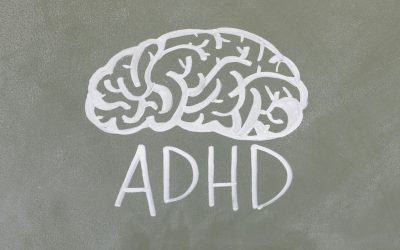Blogs
Winter Mental Health: Understanding and Managing Seasonal Challenges
Winter brings shorter days, colder temperatures, and fewer hours of sunlight, which can affect mood, energy, and overall mental health. For many individuals, these changes can trigger or worsen seasonal mental health challenges, including depression, anxiety, and...
Winter Mental Health for Children and Teens: Understanding and Supporting Seasonal Challenges
Winter can be a challenging season for children and teens. Shorter days, colder temperatures, and reduced sunlight can affect mood, energy, and overall mental well-being, sometimes leading to seasonal depression, anxiety, or behavioral changes. At Rosecrans &...
Birth Trauma: Understanding the Impact, Signs, and Paths to Healing
What Is Birth Trauma? Birth trauma refers to the emotional or psychological distress that occurs during or after childbirth when the experience is perceived as frightening, overwhelming, painful, or unsafe. While birth trauma can involve medical emergencies, it can...
Adult Autism Assessment: What to Expect and Why It Matters
Autism is often associated with childhood, but many individuals reach adulthood without ever being evaluated or diagnosed. Increasing awareness has helped more adults recognize lifelong patterns in communication, sensory processing, relationships, and thinking that...
Understanding Asexuality: Identity Exploration, Mental Health, and Support
What Is Asexuality? Asexuality is a sexual orientation defined by experiencing little or no sexual attraction to others. Asexual (often called “ace”) individuals may still experience romantic attraction, emotional intimacy, and meaningful relationships. Asexuality...
Domestic Violence in Same-Sex Relationships: Signs, Impact, and Paths to Healing
Understanding Domestic Violence in Same-Sex Relationships Domestic violence (also called intimate partner violence or IPV) can occur in any relationship, regardless of gender identity or sexual orientation. Yet domestic violence in same-sex relationships is often...
Infertility and Mental Health: Coping with the Emotional Impact and Finding Support
Infertility and Mental Health: Understanding the Emotional Toll Infertility is often described as an invisible loss—one that can quietly and profoundly impact mental health. While medical treatments tend to focus on physical outcomes, the emotional consequences of...
Adult Autism Assessment: FAQs for Adults Seeking Diagnosis and Support
What Is Autism in Adults? Autism Spectrum Disorder (ASD) is a neurodevelopmental condition that affects social communication, behavior, and sensory processing. While often diagnosed in childhood, many adults remain undiagnosed. Adult autism may present differently,...
Understanding PANS and PANDAS: Diagnosis, Symptoms, and Mental Health Treatment
PANS and PANDAS are complex and often misunderstood conditions that can have a sudden and significant impact on a child’s mental health, behavior, and functioning. Families are frequently left searching for answers as symptoms appear rapidly and may seem to come “out...
Caregiver Burnout: Symptoms, How It Presents, and Mental Health Treatment
Caregiving is an act of love, responsibility, and dedication. Whether you are caring for an aging parent, a partner with a chronic illness, a child with special needs, or a loved one recovering from injury, caregiving often becomes a full-time emotional and physical...
End-of-Year Mental Health Checklist: Reflect, Reset & Reclaim Your Well-Being
As the year draws to a close, many of us start focusing on holiday plans, work deadlines, and new year’s resolutions. But amid the hustle and pressure, it’s easy to overlook one of the most important areas of our lives: our mental health. Taking time to check in with...
Understanding Emotional Capacity: Signs, Improvement Strategies, and How Therapy Can Help
In today’s fast-paced, emotionally demanding world, emotional capacity is a vital skill that determines how well we manage stress, handle relationships, and cope with life’s ups and downs. But what exactly is emotional capacity? How do you know if yours is low? More...
Comprehensive Therapy Services at Rosecrans & Associates
At Rosecrans & Associates, we are committed to providing high-quality, compassionate therapy services for individuals, couples, families, and children. Our goal is to support mental health and well-being at every stage of life, helping clients navigate challenges,...
Telehealth Therapy: Flexible Mental Health Care From the Comfort of Home
In today’s fast-paced world, mental health care needs to be accessible, convenient, and flexible. Telehealth therapy provides clients with the opportunity to connect with a licensed therapist from the comfort of home, offering high-quality care without the need to...
Child and Teen Therapy: What to Expect at Rosecrans & Associates
Children and teenagers face unique emotional, social, and behavioral challenges as they grow. Child and teen therapy provides a safe, supportive space for young people to express themselves, develop coping skills, and build resilience. At Rosecrans & Associates in...
Narcissistic Abuse: Signs, Support, and the Path to Healing
Narcissistic abuse is a deeply damaging form of psychological manipulation that often leaves victims feeling confused, isolated, and emotionally drained. Whether you’re in a toxic relationship with a narcissistic partner, parent, friend, or boss, understanding the...
Post-Bariatric Surgery Body Dysmorphia: Understanding, Symptoms, and Treatment
Bariatric surgery can be life-changing, helping patients achieve significant weight loss and improve health. However, even after successful surgery, some individuals may experience body dysmorphic concerns, a condition where a person becomes preoccupied with perceived...
The Gottman Method and the Four Horsemen: How to Recognize and Repair Relationship Damage
Relationships are never perfect—but they don’t have to be toxic, either. If you’re experiencing more arguments than connection or communication breakdowns that leave you feeling unseen, you’re not alone. Many couples fall into destructive patterns without realizing...
Why Is a Psychological Evaluation Required Before Bariatric Surgery?
Bariatric surgery is not just a physical procedure—it’s also a life-changing commitment. Patients need to adopt new eating habits, activity levels, and coping strategies. A psychological evaluation helps: Identify strengths and resources that will support recovery....
ADHD Evaluations: Understanding the Process and How Therapy Can Help
Attention-Deficit/Hyperactivity Disorder (ADHD) affects both children and adults, impacting focus, organization, impulse control, and daily functioning. If you or a loved one are struggling with symptoms, a comprehensive ADHD evaluation can provide clarity, guidance,...
Mental Health Challenges in the Fall: Understanding and Managing Seasonal Struggles
As the leaves change and temperatures drop, many people notice shifts in their mood, energy, and overall mental health. The fall season brings shorter days, less sunlight, and transitions that can trigger emotional challenges. Understanding these seasonal mental...
Food Addiction: Understanding the Struggle and Finding Treatment
For many people, food is more than just nourishment—it can also become a source of comfort, stress relief, or even a way to cope with overwhelming emotions. But when eating patterns begin to feel uncontrollable, some individuals may wonder if they are struggling with...
Emotionally Immature Parents: Understanding the Impact and Finding Healing Through Therapy
When we think of parents, we often picture caregivers who provide emotional support, guidance, and unconditional love. However, not all parents are equipped with the skills or capacity to meet their child’s emotional needs. Some may be what psychologists describe as...
Common Mental Health Issues for Kids in the Fall Season
As the leaves change and school routines return, many parents look forward to a fresh start in the fall. But for children, this season can quietly trigger a range of mental health challenges—from school anxiety to low mood and behavioral shifts. Whether your child is...
Mental Health and Halloween: Balancing Fun, Fear, and Emotional Well-Being
Halloween is one of the most exciting times of the year — costumes, candy, and creative fun everywhere you look. But behind the decorations and haunted houses, some people experience increased stress, anxiety, or sensory overload that can make this holiday more...
Sugar and Behavior: Why Research Says Sugar Does Not Cause ADHD or Autism Symptoms (and what does help)
Parents, teachers, and clinicians often hear the claim that sugar — candy, cake, or sugary drinks — causes hyperactivity or makes neurodevelopmental conditions such as ADHD and autism worse. It’s a persistent belief. The scientific research, however, paints a...
Why the Mistress Does Not Compete with You: A Message to the Betrayed Partner
Discovering infidelity is one of the most painful betrayals you can experience. If you’ve been cheated on, it’s normal to feel inadequate, blindsided, and to compare yourself to the other woman — the mistress. You might be...
Chronic Pain and Mental Health: Understanding the Connection and How Therapy Can Help
Learn how chronic pain affects mental health. Discover symptoms, coping tips, and how therapy like CBT, ACT, and mindfulness can help manage pain. Chronic pain affects more than just your body. It wears on your mind, emotions, relationships, and day-to-day quality of...
When Love Feels Unequal: How Imbalanced Labor Affects Relationships—and How Therapy Can Help
In today’s fast-paced world, modern relationships are often strained by the invisible weight of unbalanced responsibilities. While both partners may be “pulling their weight,” the reality is that not all labor looks the same—and not all of it is seen or acknowledged....
Loneliness in Single Adults & Empty Nesters: Signs, Symptoms, and How to Cope
Loneliness is more than just being alone — it's the deep feeling of isolation, disconnection, and longing for meaningful relationships. For single adults and empty nesters, this can be especially intense. Whether you’re adjusting to life on your own or facing the...
Understanding School Refusal: Causes, Symptoms, and How to Help Your Child
Is your child refusing to go to school? Learn the causes, symptoms, and how parents can support children struggling with school refusal. Discover how therapy can help. What Is School Refusal? School refusal, also known as school avoidance, happens when a child...
Understanding OCD in Children: Signs, Symptoms, Treatment, and Parenting Tips
Obsessive-Compulsive Disorder (OCD) is often misunderstood—and in children, it can be especially tricky to recognize. While many people associate OCD with excessive cleaning or organizing, in children, OCD may appear as repetitive behaviors, unusual rituals, or...
Understanding Separation Anxiety in Children and Teens: Signs, Support, and Solutions for Parents
Discover how separation anxiety in children and teens presents during back-to-school and other times of the year. Learn how therapy helps, plus expert tips and advice for parents. What Is Separation Anxiety in Children and Teens? Separation anxiety isn’t just a phase...
Parent Burnout in the Summer: Signs, Solutions, and How Therapy Can Help
Feeling exhausted from summer parenting duties? Learn the signs of parent burnout, how to support yourself or your partner, and how therapy can help. Prioritize your mental health this summer. Why Summer Can Lead to Parent Burnout Summer is often portrayed as a time...
Invisible Labor in LGBTQIA+ Relationships: Balancing Parenting, Mental Load, and Emotional Labor with Therapy
In LGBTQIA+ relationships, the emotional landscape of parenting and partnership can be deeply fulfilling—but also complex, layered, and labor-intensive. Whether you're a two-mom household, gay dads, nonbinary or trans parents, or part of a queer co-parenting dynamic,...
Invisible Labor in Relationships: How Mental and Emotional Discrepancies Lead to Conflict—and How Therapy Can Help
Do you ever feel like you're carrying the emotional or mental weight of your relationship—while your partner just “shows up”? If so, you're not imagining it. Many relationships face conflict not because of big blowups, but because of something quieter: the...
Why Adult Children Go Low or No-Contact with Family—and How Therapy Can Help
Choosing to go low-contact or no-contact with a parent or family member is rarely a decision made lightly. For many adult children, it’s a deeply painful step taken after years of emotional turmoil, boundary violations, or unmet needs. While society often pushes...
Mental Health Therapy Tips for Estranged Parents of Adult Children
Family estrangement is one of the most painful and complex emotional experiences a parent can face—especially when the distance is with an adult child. Whether the estrangement happened gradually or suddenly, the silence, confusion, and grief can feel overwhelming. If...
How Mental Health Therapy Can Help Individuals and Couples Heal After Betrayal
When trust is broken in a relationship—whether due to infidelity, lies, emotional affairs, or financial secrecy—the emotional aftermath can be overwhelming. Betrayal cuts deep, often shaking the very foundation of a partnership and leaving both individuals feeling...
How Mental Health Therapy Can Help LGBTQIA+ Individuals and Couples Heal After Betrayal
Betrayal in any relationship is painful—but for LGBTQIA+ couples, it can also be layered with unique challenges. Whether it’s infidelity, emotional cheating, secrecy, or broken trust, betrayal shakes the core of emotional safety and connection. Add to that the...
How Couples Can Rebuild Their Relationship After an Affair With the Help of Therapy
Infidelity is one of the most painful experiences a couple can face. Whether it was a one-time mistake or a prolonged affair, betrayal can shake the very foundation of a relationship—damaging trust, safety, and emotional connection. But here’s the truth: an affair...
Why People Cheat in Relationships — And How Therapy Can Help Heal and Rebuild
Infidelity can devastate a relationship—but understanding why cheating happens is a powerful first step toward healing, accountability, and repair. While betrayal hurts deeply, it's rarely as simple as “someone just wanted something new.” The truth is: people cheat...
Why Couples Repeat the Same Argument Over and Over — And How Therapy Can Help Break the Cycle
Do you and your partner keep having the same argument again and again—only to end up frustrated, disconnected, and no closer to a solution? You’re not alone. Many couples fall into a cycle of recurring fights that never seem to get resolved. These “stuck” arguments...
Is Your Child Afraid of Being Bullied? Signs, Effects, and How Therapy Can Help
Is your child showing signs of being bullied or afraid of bullying? Learn the emotional and behavioral symptoms, how parents can help, and how therapy supports children who are struggling. The Hidden Pain: Fear of Bullying and Its Lasting Impact on Children Bullying...
Back-to-School Challenges for Kids & Teens: Tips for Parents and How Therapy Can Help
The return to school can be a time of excitement, change, and—for many children and teens—heightened stress and anxiety. Whether your child is starting kindergarten, entering middle school, adjusting to a new school, or facing the pressures of high school, the...
Understanding Cravings and Food Noise
Cravings and food noise are experiences many of us face regularly. In this blog post, we will dive deep into the science behind cravings and food noise, their symptoms, and the most effective ways to reduce them for better mental and physical well-being.
Somatic Therapy
In today’s fast-paced world, mental health is more important than ever. Traditional therapies often focus on the mind, but what if the key to mental well-being lies in the connection between mind and body? This is where Somatic Therapy comes into play.
Understanding the Grief of Miscarriage
Experiencing a miscarriage is one of the most devastating and emotionally overwhelming experiences a person can go through. In this post, we will explore the grief of miscarriage, its symptoms, the impact it has on individuals and their partners, the family dynamics, and available support and treatment.
Navigating the Complex Grief of Losing a Parent
Losing a parent is one of life’s most profound and difficult experiences. Whether you’re a child or an adult, the impact of such a loss can be overwhelming. In this blog post, we will explore the expense of grief, the effects on self and family, symptoms, and how to manage this painful journey.
Parenting with ADHD
Parenting is a challenge for any adult, but when you have ADHD and are raising a child with ADHD, the journey can feel overwhelming at times. In this blog post, we will explore the unique difficulties faced by adults with ADHD who are also raising children with the same condition.
Understanding the Grief of a Parent and Loss of A Child
Losing a child is one of the most profound and devastating experiences a parent can face. Whether you’re currently struggling or supporting someone who is, understanding the complexities of this grief is the first step in the healing process.
The Grief of Divorce
Divorce is one of the most emotionally taxing life events a person can experience. It often brings with it profound feelings of grief, loss, and uncertainty, not just for the couple involved but for their children and extended family as well. This article explores the grief associated with divorce, the symptoms individuals may experience, its impact on the self and children, and effective treatment strategies for healing.
Understanding Religious Trauma
Religious trauma is a profound and often misunderstood experience that affects individuals who have been exposed to harmful religious practices, beliefs, or environments. Understanding religious trauma is essential for healing and recovery, as it helps both the individual and their community navigate the complex emotions and struggles that arise from these experiences.
Unique Challenges of Parenting a Child with ADHD
Parenting a child with ADHD (Attention-Deficit/Hyperactivity Disorder) comes with unique challenges that can test your patience, creativity, and resilience. This blog is not just about managing everyday parenting tasks—it’s about understanding a different way of thinking, feeling, and behaving.
ADHD and Disordered Eating
Attention Deficit Hyperactivity Disorder (ADHD) can have a significant impact on many areas of a person’s life, including their eating habits. In this blog we talk about one of the lesser-discussed aspects of ADHD is its connection to disordered eating, particularly impulsive eating and binge eating disorder (BED).
Understanding the Link Between Trauma, PTSD, and Disordered Eating
One of the most common and under recognized connections is the relationship between trauma, Post-Traumatic Stress Disorder (PTSD), and disordered eating, including Binge Eating Disorder (BED). In this post, we will explore how these conditions are linked, the mental health treatment options available, and why it’s crucial to address them together for effective recovery.
People Pleasing Traits
People-pleasing is a common behavior pattern that can have profound effects on an individual’s mental health and relationships. In this blog post, we’ll explore the key traits of people-pleasers, where these behaviors originate, and how they impact relationships.
Understanding Self-Compassion
Self-compassion is a transformative practice that involves treating yourself with the same kindness, understanding, and support that you would offer to a loved one in times of struggle. In this blog we dive into the concept, the benefits, and how it plays a crucial role in therapy.
Understanding Time Blindness and Time Management
Time blindness is a cognitive condition that makes it difficult for individuals to perceive the passage of time accurately. It often results in people losing track of time, being late for appointments, struggling to complete tasks within deadlines, or feeling overwhelmed by their schedule.
Navigating Workplace Conflicts: How Mental Health Therapy Can Improve Workplace Relationships and Boost Productivity
The impact of unresolved conflicts can be far-reaching, affecting not only workplace morale but also individual mental health. Fortunately, mental health therapy can offer valuable tools to address these challenges and foster a healthier work environment.
Understanding Health Anxiety
People experiencing health anxiety are often consumed with fears about having a serious illness, despite having no medical evidence to support these concerns. This form of anxiety can impact everyday life and well-being, leading to constant worry, unnecessary medical tests, and emotional distress.
Understanding Anger Management: Symptoms, Challenges, and Effective Treatment
Anger is a natural emotion that everyone experiences at some point, but when it becomes uncontrollable or frequent, it can negatively impact your health, relationships, and overall well-being.
Understanding Gender Dysphoria: Symptoms, Causes, and Treatment Options
Gender dysphoria is a psychological condition that occurs when a person experiences significant discomfort or distress due to a mismatch between their assigned gender at birth and their identified gender.
Understanding Dental Anxiety: Symptoms, Causes, and Effective Treatments
Struggling with dental anxiety? Learn the symptoms, causes, and proven treatments to manage fear of the dentist.
Navigating Love: The Unique Challenges Trans Individuals Face in Dating, Relationships, and Marriage
In this blog post, we will explore the unique difficulties trans individuals face in dating, relationships, and marriage, and how they are redefining what love and commitment mean in the context of their gender identity.
Understanding White Coat Syndrome: Causes, Symptoms, and Treatment
White coat syndrome, also known as white coat hypertension, is a common phenomenon in which patients experience elevated blood pressure levels when they visit a doctor or healthcare setting.
The Unique Difficulties Bisexuals Face in Dating and Relationships: Understanding and Overcoming Challenges
Dating and relationships can be complex for anyone, but for bisexual individuals, there are unique challenges that can make forming and maintaining relationships even more difficult.
The Impact of ADHD on Marriage: Understanding, Managing, and Thriving Together
ADHD (Attention Deficit Hyperactivity Disorder) is a neurological condition that affects both children and adults. In this blog, we will explore how ADHD affects marriages, the common challenges faced, and how couples can manage these issues together.
Understanding the Differences Between Social Anxiety and Social Phobia: Treatments and Solutions
Social anxiety and social phobia are different, and this post will explain their differences, symptoms, and the best treatments for each to help manage social fears.
Betrayal Trauma: Understanding the Symptoms, Effects, and Treatment
Betrayal trauma is a painful experience caused by someone you trust betraying you, and this post will explain its effects and symptoms, as well as treatment options for healing.
Betrayal Loss: Understanding the Pain and Healing Process
Betrayal loss is a deeply painful experience that involves not just losing someone, but also trust and security, and this article will explore why it hurts so much and how to cope and heal.
Low-Contact vs. No-Contact During the Holidays: Navigating Family Boundaries and Emotional Well-Being
The holidays can be tough for some people due to family issues, so this post will explain low-contact and no-contact options, why people choose them, and how to handle them while focusing on self-care and boundaries.
Grief and the Holidays: Coping with Loss During the Festive Season
The holidays are often seen as a time of joy, celebration, and togetherness. However, for many people, the holiday season can trigger feelings of sadness, loneliness, and grief. If you’ve lost a loved one, gone low or no contact, or are navigating a difficult life...
Grief and Loss: Understanding the Different Types and Effective Treatments
Grief and loss are universal yet deeply personal experiences, and understanding their types and evidence-based treatments can help individuals cope with these challenging emotions more resiliently.
Bariatric Surgery, Marital Problems, and Therapy
Bariatric surgery can impact both physical health and relationship dynamics, leading to challenges like role shifts and emotional distance. Therapy and support groups can help couples navigate these changes and improve communication post-surgery.
Understanding Addiction Swapping After Weight Loss Surgery
In this blog post, we will explore addiction swapping after weight loss surgery, focusing on alcohol and other commonly addictive substances, while providing tips for managing this risk.
Coping with Pet Loss
Losing a pet can be one of the most heart-wrenching experiences a person can face.Our pets are more than just animals; they are family members, confidants, and sources of unconditional love.Understanding the Grief of Pet Loss Grieving the loss of a pet is a natural...
GAD
Anxiety is a normal and common human experience. We need anxiety for survival, and in our everyday activities like driving, taking tests, or completing work projects on time. People can experience anxiety during stressful life situations or transitions, such as...
Seasonal Affective Disorder (SAD)
Seasonal Affective Disorder typically begins in fall and lasts throughout the winter with remission starting in spring and lasts throughout the summer. This disorder occurs more often in parts of the world with reduced sun exposure during the fall and winter months.
How Therapy Can Help with Weight Management
People try many different ways to lose weight, and can still struggle. There are fad diets and procedures that claim they can help you lose weight fast, but most of these are short term solutions. Any diet, medication, or procedure works as long as you follow the...
Have Questions about Therapy, Therapists, and Insurance? We Have Answers.
It is a hard decision to realize we need help and then how to find someone to help us. It’s hard to know where to start, who to turn to.
Pre-surgical Bariatric Psychological Evaluation FAQ
We answer all your questions to the Pre-surgical Bariatric Psychological Evaluation.
Pre-Surgical Spinal Stimulator Evaluation FAQ
Questions about your Pre-Surgical Spinal Stimulator Evaluation? We have the most asked questions right here.
Hypnosis FAQ
Hypnosis works on one’s suggestibility when they reach a hypnotic state. Hypnosis begins with what is called an induction, which means having someone achieve a deeply relaxed state of mind or hypnotic state.
Binge Eating Disorder and Emotional Eating
Binge eating disorder (BED) is the most common eating disorder, but is the least talked about of the eating disorders. It has been gaining more attention over the past several years since the addition of the diagnosis to the DSM-V.





















































































